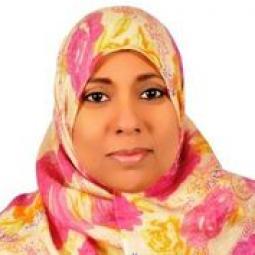When a Malawian girl dares to dream
October 03, 2022
When they were in secondary school, six young ambitious Malawian girls boldly told the BBC their dream careers. Ten years later, they did it.
When they were in secondary school, Christina Choliva, Gerida Kalipinde, Sylvia Siwinda, Memory Jolamu, Fiona Nsona, and Tadala Katunga, told the BBC they would like to become doctors, engineers, and journalists, and that is what they did. What’s remarkable about their story is that they set out their goals so young and they were able to achieve them despite the discouragement and negativity surrounding their choices of profession.
In September 2012, these ladies (then young girls) were part of an audience at a high-level women’s leadership meeting and were selected to participate in a debate with the theme “Are women winning the power battle in Africa?” where the BBC was present. As the selected few from their class, the enthusiastic young girls were asked about their dream professions. According to a Facebook post by the BBC, Christina wanted to be an electrical engineer, Sylvia wanted to be a doctor specializing in oncology, Gerida wanted to be a journalist, Memory, Tadala, and Fiona wanted to be surgeons.
Asked how they found themselves at the high-level meeting, the girls could not recall, but one thing all of them remember is that attending that meeting, and being in the company of high-profile women/leaders inspired and motivated them to pursue their dreams. In the fight for increasing women's participation in STEM and other male-dominated spaces, we tend to underestimate the influence of representation, but it matters. A lot. Being surrounded by women who have achieved their goals is enough inspiration to motivate other women and young girls to be firm about their dreams.
So 10 years later;
Christina Choliva, graduated from Malawi University of Business and Applied Sciences (MUBAS) with a degree in Electrical engineering and currently works with Elizabeth Glaser Peadiatric AIDS Foundation (EGPAF).
Gerida Kalipinde graduated with a Bachelor's degree in Arts and Journalism from MUBAS in 2018 and is currently working in communications and marketing which she is passionate about. She also identifies as a creative and a blogger.
Sylvia Siwinda- Studied for her Bachelor of Surgery and Bachelor of Medicine at (MBBS) Kamuzu University of Health Sciences (KUHeS) in Malawi, formerly Malawi College of Medicine (COM), and has just recently winded up her medicine internship, she has developed other interests, and would like to specialize in surgery as opposed to oncology.
Tadala Katunga graduated with a Bachelor's degree in pharmacy from KUHeS which she graduated with distinction. Still passionate to become a doctor she tried to get redirected to MBBS but later started to enjoy pharmacy and has developed a passion for it as she still gets to work in medicine. She is currently a lecturer at st Joseph’s college of health sciences in Malawi.
Memory Jolamu recently graduated with a Bachelor's degree in Accountancy at MUBAS, which she was selected for despite her first choice being the MBBS at COM. She is now working with Ernst & Young as an Audit Associate.
Fiona Nsona recently graduated with Bachelor’s degree in Technical Education (Science) from MUBAS but recently pivoted to Finance, an interest she developed after her internship with one of the biggest banks in Malawi.
Unfortunately, these ladies have not escaped the sexism and discrimination associated with women in male-dominated spaces especially STEM. “I have had people and mostly men undermine me because I am a woman since college and even in the workplace. It is sad, but also not unexpected,” said Christina, alluding to her experience working as an engineer. Gerida echoed the same, “In journalism, people may not know this, but there is a separation in terms of what women can do. Investigative journalism is for men, for example. The soft roles are for women, so someone daring to do something different is alien to most people.” Sylvia also has an all-relatable story about being referred to as a nurse while other male health workers are always called doctors regardless. “It has an impact on how a patient perceives your medical advice. Patients are more likely to heed advice of a male doctor than a female doctor for some reason. I have however become assertive and I am more firm about this to patients and colleagues as well,” says Sylvia. Memory on the hand has learnt to focus on the positives and has been fortunate to have worked with men who motivate her.
While Fiona and Memory did not become doctors like they dreamed to, they have developed passions for their current professions and are as ambitious. “You can do anything you set your mind to,” says Fiona, a scientist turned Finance professional. “Life may not work out sometimes, and you may face challenges, but that should not stop you from fighting for your dreams. Just keep working hard and go after your dreams”.
What advice do the ladies have for young dreamers? They all echo that passion and hardwork is key. Sylvia encourages women to be open to opportunities. “Don’t limit yourself, dreams change. As you grow, interests change, and you get exposed. Be flexible and see the possibilities of what you can do at any stage in your life.” Christina concurs with her friends. “Engineering is fun, you can work in so many fields, you just need to have passion for it and enjoy it. Anyone can do it.” Tadala encourages young girls to never give up in life and always motivate themselves. “I have always been driven by challenges, I go for what people say is impossible. So it’s not about what people say about you but what you say about yourself.”
These young Malawian ladies represent a typical girl pursuing a male-dominated dream in Malawi. They dared to dream and their hard work paid off.











































